#like i’m tired of twitter and other platforms /gen
Explore tagged Tumblr posts
Text
phannie tumblr is the only sane community of d&p fans and honestly i hate the vibe of every single other social media /gen
#dan and phil#mei rambles#like. i just love how we’re all on the same page#no ones fighting#it’s civil and everyone knows what’s up#like i’m tired of twitter and other platforms /gen
162 notes
·
View notes
Text
Ok…I’m probably gonna get attacked/mocked for this but I need to vent for a min..
Has the gothic literature/gothic media community also been so…rude/pretentious?/gen
Because in a post of my short review of the Nosferatu 2024 film I said that I liked the movie and thought it was amazing, but that the whole thing with Orlok meeting Ellen as a child made me a bit iffy and I already have 2 anons come at me for it accuseimg me of hating the movie when it’s the exact opposite.
I’ve also seen ppl on Twitter, tumblr and other platforms basically make fun of ppl who didn’t like that Orlok met Ellen as a kid or straight up saying that what Orlok did wasn’t grooming. Yes Ellen did want Orlok when she called out to him due to loneliness but that doesn’t make it right, yes the movie isn’t about grooming but idc. She still was literally a child.
Which like yeah the whole dynamic between Ellen and Orlok is supposed to be horrible/terrifying, but if that’s the case then why are you getting mad at and making fun of ppl who’re horrified about it??
“Take your sensitive ass back to Hotel Transylvania”
Uh what’s wrong with Hotel Transylvania?? Why are you bringing up and shitting on a kids movie to prove a point???
Ppl have a right to feel uncomfortable about things especially if it involves grooming. And yes gothic literature/media does have some of this type of stuff in some stories and I know that there’s nuance to gothic media/literature but that doesn’t mean grooming is ok?? Also just because someone rightfully didn’t like the fact that Orlok and Ellen met when she was a child doesn’t mean that they’re pro purity culture??
I’ve also seen ppl making fun of others for not finding Orlok attractive and making fun of others who like conventionally attractive vampires like from twilight and or anime(even tho these are the same ppl who also simp for some of the characters from Interview with a vampire) not to mention others shitting on vampire media with romance plots and or different Dracula stories that involved romance too.
Plus conventionally attractive vampires within gothic media have been around for decades and maybe even centuries and they don’t “ruin the vampire genre”. ALL vampire archetypes are valid whether they be the “ugly” type or the conventionally attractive/humanoid type. Same goes for monster/nonhuman characters in general. I personally like a mix of both.
Ppl shouldn’t be made fun of, ridiculed, nor called “cowards” for having preferences in FICTIONAL non human creatures that don’t even exist.(This is also one of the reasons why I don’t rlly associate with the label monster fucker anymore cuz yall will go after anyone who doesn’t wanna fuck creatures like the xenomorph). Why can’t we just let ppl enjoy things???
It sucks cuz I’ve been obsessed with vampires ever since I was a little girl and while I did/do like pink cutesy stuff I also liked horror and gothic stuff as a kid too and I still do now. I want to get into more gothic literature I may like but after seeing all these mean/awful ppl in the community I’m kinda having second thoughts(I may get into more gothic media/literature either way but still).
Idk man I just wanted to voice my thoughts about a cool gothic vampire movie that had one of my favorite actors in it and wanted to see how the 2024 rendition of Orlok looked(which I liked as well btw tho didn’t know how to feel about the mustache. I know it’s supposed to be historically accurate and all but still) especially since an actor I rlly liked was playing as him. I’m tired…
#rant#vent#horror fan#nosferatu#nosferatu 2024#count orlok#gothic horror#gothic literature#gothic media#vampires#gothic movies#horror movies#horror films#vampire#vampire movies#vampire media#bill skarsgard#bill skarsgård
24 notes
·
View notes
Text
The Personal Brand Is Dead
Gen Z would rather be anonymous online.
When I was 21, the cool thing to be was famous on Instagram. Now the cooler thing to be is a mystery. Anonymity is in.
The youngest adult generation and the most online generation is frustrated with being surveilled and embarrassed by attention-seeking behaviors. This has instigated a retreat into smaller internet spaces and secret-sharing apps, as well as a mini-renaissance for Tumblr, where users rarely use their full names. (The majority of new users are Gen Z, according to Chenda Ngak, a spokesperson for Tumblr’s parent company.) The voice- and text-chat app Discord, known for a culture of anonymous and pseudonymous discussion, now has 150 million users; anonymously run hyper-niche meme accounts are suddenly the coolest, most exciting follows on Instagram. The group-therapy app Chill Pill offers a “world of future friends and better days” but does not permit the sharing of any personally identifying information. (I downloaded the app but can’t make a real account—I’m over the age limit, which is 24.)
Something has shifted online: We’ve arrived at a new era of anonymity, in which it feels natural to be inscrutable and confusing—forget the burden of crafting a coherent, persistent personal brand. There just isn’t any good reason to use your real name anymore. “In the mid 2010s, ambiguity died online—not of natural causes, it was hunted and killed,” the writer and podcast host Biz Sherbert observed recently. Now young people are trying to bring it back. I find this sort of exciting, but also unnerving. What are they going to do with their newfound freedom?
In part, the trend is a response to security concerns. During the Black Lives Matter protests in the summer of 2020, young people downloaded the encrypted messaging app Signal by the millions to avoid the surveillance they considered possible or probable on other platforms. The anonymous hacker group Anonymous made a buzzy return and was embraced by K-pop fans, many of them anonymous, while engaging in pranks that doubled as acts of civil disobedience. Other activists disseminated tools for blurring protesters’ faces in Instagram Stories, and tried to steer one another off mainstream apps and onto smaller, decentralized ones where users have more control of the data they create and share.
Anonymity can also be ideological. Crypto culture, now known as Web3 culture, was founded on the idea that transactions can be made online without the exchange of personally identifying information. It also has a newer norm of replacing one’s human face with a cartoon. In crypto circles, mentioning a very rich and successful person’s real name can amount to “doxxing,” and even those who aren’t well known are cautious about sharing the barest personal details. At a recent party sponsored by a new Web3 platform, a guest with about 5,000 Twitter followers explained to me that people online do know what he looks like—he “shows face,” as he put it—but that he has never shared a single photo of his girlfriend. Too dangerous.
But in the end, a return to anonymity is just a return to form. Hiding your identity has always been important for getting through the horror of being a person under the age of 24 on the internet. The gradual reveal of personal information, even building up to a “face reveal,” was once a give-and-take among people who shared the same online space for a long time, fostering trust. When Instagram and TikTok arrived and made it possible to make a lot of money from your face, personality, thoughts, beliefs, and personal trauma, young people forgot how good it felt to be no one in particular, or to try on various identities. In the past few years, they have been coming back around.
“It seems like Gen Z is getting really tired of presentation culture, as you might call it,” Zeke, a 21-year-old biologist and frequent Discord chatter, told me. “The idea that everything you do has to be a representation of your personal identity.” Obviously, he did not want me to publish his full name—he’s applying to lab-tech jobs right now, he said, and though nothing he was going to say to me would be scandalous or might put off a potential employer, he did not want to “risk it.”
Zeke does not have any active social-media accounts with his full name attached to them, but he is in many Discord servers pertaining to his interests, including art, writing, and science. He spends a lot of time there sharing interesting or funny photos of animals, and he met his longtime boyfriend while Discord-chatting under a pseudonym that is a play on Kermit the Frog. The site is “chill,” he told me. The servers that he likes best have 100 to 200 users, so the conversation is always lively, but it doesn’t get out of control or competitive. Sometimes people anonymously say disgusting things—the worst things he has ever read! (That well-established tendency has contributed to the collapse of anonymous social platforms in the past.) But mostly they just drop cool pictures and funny memes, and discuss or riff on them. “There’s an understanding that, like, you’re not going to kick each other, you’re not going to judge each other,” he said. “You’re not here to represent your identity; you’re just here to chill.”
The surprising recent popularity of Discord suggests a nostalgia among members of Gen Z for IRC and forum cultures that existed mostly before they were born. The return to Tumblr reflects a longing for the more recent past—just before the age of the influencer. “I’ve been on Tumblr for about 11 years because I was 11 when I got it,” Maya, an aspiring artist and photographer, told me. She asked to go by her first name only, as she does on Instagram. On Tumblr, where she feels most comfortable, she goes by the username coldstonedreamery—a reference to an episode of This American Life that she heard long ago in her mom’s car. She remains anonymous partly for artistic reasons: Being an enigma is good for world building and creating a mystique around her work, she said. She wants to be known for her point of view, not for her face or even her personality. “I mean, there are embarrassing YouTube videos of me playing guitar when I was 12 under my real name,” she added.
Being an enigma can produce strange results: Teenage girls on Instagram sometimes borrow selfies of Maya that don’t have her face in them and present them as their own. Most of the time, though, Maya sees her anonymity as being cozy. “I probably get 20 anonymous messages and questions a day, and I feel fine answering them and exposing all these intimate details of my life,” she said. “The people asking the questions probably don’t know what I look like, probably don’t know where I am or how old I am. I feel safer. There’s like a cloak over me.”
Even on Instagram, classic influencer culture is falling out of style. Among the well-known, generally beautiful faces who go by their real names, there are now thousands of niche meme accounts run by anonymous proprietors. Members of this latter group sometimes reveal their true identities when it becomes financially appealing to do so—if they’re offered a book deal, for example, they have to reveal themselves to someone. If they land a profile in The New York Times’ Style section, then everyone is in on the secret. But many more of them just post away from behind a curtain. (The more niche the content gets, the less likely it is that financial incentives will be in play, and the more likely the anonymity will last.)
The 24-year-old meme-maker behind an Instagram account called @neoliberalheaven makes pop-culture-inflected collages overlaid with parodies of online political discourse. (His profile picture is of the meme-literate musician Phoebe Bridgers.) He asked to remain anonymous for this story because he doesn’t want to limit future job opportunities and because being anonymous is part of his whole deal. The people who come across his feed can appreciate his work for its own sake, he told me, and they don’t care who he is. He also observed that anonymous accounts, by foreclosing on the possibility of becoming a personal brand, come off to some viewers as more “authentic,” or as “a new source of genuineness” online because they aren’t selling anything or trying to become stars. The internet’s prizing of authenticity has gone through the looking glass.
As a person who loves the internet, this all makes sense to me. Why should everyone have to live and write and think publicly at all times? Why should they be limited in that way? As a journalist who reports about the internet, I’ve found it frustrating too. In the past few years, more and more sources have been asking for anonymity on principle—not because they are afraid of specific or likely consequences, but because being named just doesn’t seem worth it. I can’t help but see this as unwillingness to say something and really mean it—and the portent of a sort of sad, slightly paranoid near future, in which everyone is cool, very cool, and impossible to pin down.
Kaitlyn Tiffany s a staff writer at The Atlantic.
https://www.theatlantic.com/technology/archive/2022/06/gen-z-internet-anonymity-instagram-tumblr/661316/
3 notes
·
View notes
Text
it’s the end ...
you know, i really thought that i’d be more upset to hear that rookies was closing. i’ve been in this rp perhaps not as long as many others, but for long enough that rookies has been a very integral part of my life for quite some time. it’s so odd to have the knowledge that it’s gone, quite honestly. i’m not entirely sure what to say. rookies had its good and bad, but i don’t think i regret joining. i was never completely unhappy, even if i had my struggles - but everyone did? that’s how it comes for everything. i loved being a part of this group, and it’s so sad to see it go right when i thought maybe things were going to be getting better. i’m not often an optimist, and maybe this is why, haha.
anyway. suffice to say, if you want to keep in contact, i’m more than happy to. please go ahead and follow me on twitter @/arkendrai if you’d like to, that’s where i’m easiest in contact with people. if that doesn’t work, i can share my discord as well. it’s up to you! but i’m more than happy to keep in contact with the friends i’ve made through rk.
as for yoojung ... ahh, yoojung.
my first and final muse, it’s strange that i’m saying goodbye. but i don’t think her story is going to move to another platform, as much as i love her so much is written in rookies that i’m probably going to be closing her story here. sad to say, but i don’t think anything else needs to be told. her story as a trainee was so long and made me a little stressed, so although i’ll miss her i’m also excited to move on, past her story. i’ve gotten tired of the monotony - and so has she.
and since everyone else is telling their muses stories, i guess i should give my ideas for yoo’s.
i was planning on having her leave the heartz project by the end of this month anyway -actually all the cogs were put in so she definitely would’ve left next month. so she would’ve returned to royal and likely finally debuted through them. eventually.
main rapper choi yoojung!! it needed to happen and i’m so sad that it never did. she had so many opportunities, and i was sad that i turned some of them down ... but it would’ve happened as royal’s second gen gg. maybe choreography, she would’ve eventually gotten into writing lyrics and become a rapmaker. maybe one day debut as a soloist? who knows. the girl wanted to perform, and she would’ve done what she had to
may eventually she would become a choreographer for royal/the samsung umbrella at some point? maybe once her career as an idol was over, she’d change her path. she was always so much more of a dancer, that if things didn’t work out with royal, she probably would’ve gone into choreography
as for life? eventually, she and @rkarin would’ve gotten together. clem and i had planned for them to be the cutest fucking couple that i’m so sad it never happened, and i’ll forever be upset that we didn’t get to write them being the cute gay couple they DESERVED TO BE ... childhood friends to lovers? my favorite trope. they’d be able to pretend they were just ‘good friends’ to netizens. it would’ve been hilarious. we love to see it. there would DEFINITELY be speculation on yoo about her sexuality, i have no doubt - but she’d be careful enough not to get into a scandal
there are so many integral people in my life because of rookies. from my first friend in @rkdoyeon / @jiwoork (gab) to my first ship with former-rkdongmin (jess; rip, the only m/f couple that had rights) to one of my closest friends now @yuzurk / @jkookrk (rina). not to mention all the friends i made along the way - if you think i’m talking about you, i probably am. i’ve met so many people through rookies, and i really did make so many friends through rookies, it was so integral in my life - and although i’m sad to see it go, i think that’s okay. i think even though it’s sad, that doesn’t change any of the friendships i’ve made. and i’m more than happy to still chat/write with everyone who wants to still chat/write with me. just let me know, i’m always available.
so, the chapter closes on this muse. on this rp. and if you’d like to write with me, for the time being i’m over at legacy. we’ll see where life takes us from there.
16 notes
·
View notes
Text
Okay so I said on twitter
the commander keen “free” to play mobile game hits off so many of my “bad remake” ideas that it hurts.
1. the trailer was trying to cater to both the old fans and new gen. And failed at both. It’s got the jangly keys look at all the bright colors form of entertainment for children, an uncomfortable attempt at saturday morning cartoon theme song, the whole shebang. This stuff takes skill to pull off well. It wasn’t here.
2. doesn’t match the original gameplay very much.
3. one of my least favourite character tropes, think it’s called “put a bow on it” or something? Basically they make the game about the original Billy’s kids, the boy looks like the original character almost identical in fact, the girl is pretty much just “girl version” which I fucking hate. Like, you couldn't make her her own character but you just had to have grill and that means dress + long hair + eyelashes. Damn it. Why do people do this? I’m dead serious. I’d be perfectly fine with the game being about Billy’s kids if they had actually made a girl character instead of just slapping “girl traits” onto the existing male design because they “had to” no, you didn’t. Like yeah, I guess they’re twins and that’s a twin thing, but at this point... why? Could have taken a risk and given her a design that fits but is significantly different from her brother. I just, I’m so tired.
4. Mobile game. Enough said. You are banking on a nostalgic property, with humor that doesn't really appeal to our much more culturally in-tuned next gen, or the original fans, who are the only ones who would have played it except for extremely diehard fans like me, who like the taste of suffering. A platformer from DOS known for its massive screen that scrolled and story-driven platforming doesn't translate well into, admittedly I don’t know what mobile game genre it is based on the trailer. Because I don’t play them. Because they’re financially exploitative. Which leads into the next point.
The fact that “free” to play games take advantage of kids who have access to their parent’s financial information on their phone. Ones specifically aimed at kids I’d say are EVIL.
I’ll disagree with what a lot of people have said though and say that the art style IS cute and appealing. And other than the whole “slap eyelashes and a dress on the male protagonist to make a girl version with no effort” gripe I can’t really pick out anything wrong with the style. Aside from the fact that this sort of art style is particularly tasty to a specific group of people on the internet. I think you know what I mean. Those people. Yes. Who are likely going to be very receptive towards these characters... ugh.
Some positives though:
Billy had ambiguous hair color. Confirmed red head now.
The vorticons are legitimately well designed. I love how they’ve been translated to a more detailed art style.
Dopefish <3
3 notes
·
View notes
Text
Chapter Nineteen : FRANCE TODAY

Third and final part of our absolutely tiring saga on France and its LGBTQ+community. As we came to talk about everything in the past tense, from the rise of the Gay Rights Movements, the AIDS epidemic to the Mariage pour Tous, now is the time to explore the present and what’s ahead of us. After that, no more France (Maybe. Probably. Let me fake promise that real quick.)
THE LAST FIVE YEARS
Let’s put it all out there right now. Acts of homophobic nature have been in constant high ever since the massive Mariage pour Tous debate. Although you saw a 38% drop from 2013 to 2014, it went up again in 2015 and never stopped. In the annual report from S0S Homophobie (which “celebrates” its 25 years of existence. Condragulations ?) for 2018, homophobic violence was up 15% from the year before. 1905 people reported various forms of abuse. I was one of them. Twice. Physical attacks against LGBTQ+ people were up 66%, from 131 to 231, with one attack reported per day in the last semester. It now seems like homophobia and intolerance are part of our french DNA.
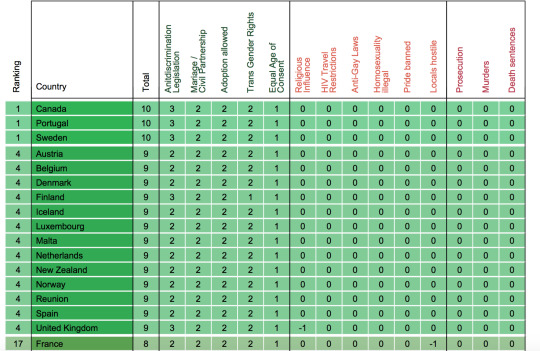
The internet site Spartacus publishes each year a ranking of the most welcoming LGBTQ+ countries in the world. It judges said countries on fourteen different issues that constitute the basis of the Queer movement (Anti-discrimination Laws. Marriage/Civil Partnerships. Adoption. Transgender Rights. Equal Age of Consent. Religious Influence. HIV Travel Restrictions. Anti-Gay Laws. Homosexuality. Illegality. Pride Banned. Locals’ Hostility. ProsecutionMurders. Death Sentence). In 2018, France was a sixth most welcoming country for LGBTQ+ travelers. A year later, it was ranked seventeenth. It seems that our lower ranking is due to the hostility of our citizens towards LGBTQ+ people. In fact, off the top 24 countries (out of 197), we’re the only one to get a -1 in that category — For the record, the last on the list is Chechnya, with a staggering -5 on the death sentence column.
Insults. Rejection. Ignorance. Defamation. Discrimination. Harassment. Outings. This is French LGBTQ+ people’s daily bread. Is that the price to pay for equal recognition under the law ?
WHAT’S UP WITH THE PEOPLE ?

If interested, I urge you to read the SOS Homophobe report for 2018. It’s a hefty 164 pages but it’s full of precious informations. So. The people. LGBTQ+ populations are still being persecuted, but this time it comes from the people. “Positively”, a trending fact for 2018 was the victims’ courage to speak out and report those attacks either on social media or to the police. One might say that the report seems more alarming because people speak out more, contrary to previous years. Fuck those people. It’s alarming. End of sentence. But if victims go more and more to social media to denounce injustices, social media is still a nest of hateful speeches from the scum of the earth. “La propagande des sodomites en action” posted one homophobe on Facebook. “Dommage qu’on ne soit pas dans les années 30 en Allemagne” said another about a 19 year-old lesbian girl outed on the same platform. “Les gens comme toi, on les brûle, on les viole”.

In November 2018, Bilal Hassani was chosen to represent France at this year’s Eurovision. Hassani is an openly gay genderfuckin singer-songwriter with a youtube channel where he talks about everything and anything. After the announcement, death threats, homophobic and racist tweets were invading his social media. The singer then posted a video talking about it, complaining about the lack of reactivity from Twitter and Facebook when it came to put a stop to it. When one Facebook user sent a warning about an offensive comment on the platform (“l’homosexualité est un péché, il faut l’éradiquer”), it was replied that the comment was not infringing on any of the site’s rules but sure, it could be seen as offensive. The user was only offered the possibility to block the author of the post. Social media is a double-edged sword. It gives you more exposure, better ways to interact with people like you, be celebrated for who you are. It also tries to take you down. And since the law hasn’t totally caught up with the cyber world, most racist, homophobic, sexist websites go through loops to keep their actions free of any consequences.
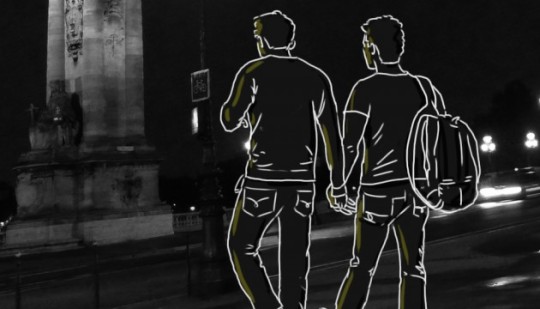
If only people were only hiding behind a screen. Unfortunately, being a public space has become a dangerous situation for any of the Ls, the Bs, the Gs, especially the Ts or any of the letters of the community. Parks, streets, subways. Anything can happen to us. People are usually attacked by groups of men in premedidated acts.
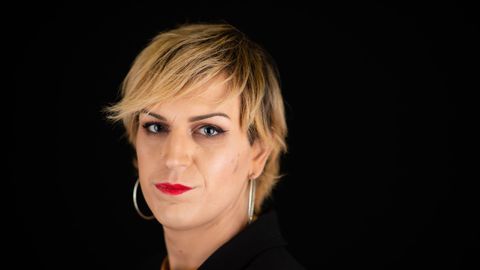
One of the most recent and choking attacks is dated March 31st in Paris, when 31 year-old Trans woman Julia was insulted, grabbed inappropriately, spit on, slapped and pushed around when she came out of a subway station at République. Videos of the attack went viral within minutes of the event. Julia later said the traumatic experience left her humiliated. The fact that it was filmed brought awareness to those problems and Julia went on to give a few interviews and gave a face to the injustice. That’s one brave woman.
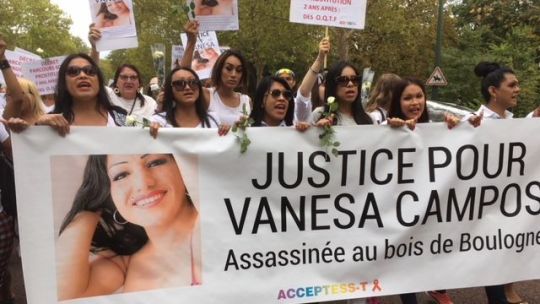
Worst case scenario was the story of Vanessa Campos, a sex worker who was murdered in the night of August 16–17th 2018, defending herself against a group of men trying to bully and steal money from her community. It took weeks before any sorts of sympathies came from the government (it took a “marche blanche” organized by the people). The police was apparently aware of the previous acts of terrors perpetuated by this group of thugs and did nothing. Worst of all, the trash magazine that is Paris Match published pictures of Vanessa’s corpse and exploited her image while tarnishing her identity by using the pronoun “he” to describe the late victim.
One of the worst aspects of that every day reality — and I’m guilty of that as well — could be the trivialization of those acts as “it is what is”. Someone says “Faggot”, I shrug. A dirty look ? Well, I knew what kind of neighborhood I was in. A trans hooker is killed ? Well, she was a prostitute AND she was trans. Do you know why? Because that’s all we hear. From the moment we are conscious of words as children, jokes about faggots are made. Puns about lesbians are openly uttered. Transgender people and Bisexuals are great to make fun of in family dinners. It’s called “casual homophobia” and we’ve all been practicing it. “Fais pas ton enculé”, “Avec ta nouvelle coupe de cheveux, tu fais lesbienne”, “On est pas des pédé, ici”.

The practice of ignorance and the absence of second thoughts on our actions and words are what’s keeping the homophobia alive and well. We live in a different time. Queer people are there. They exist and they are so diverse. Now is the time for cis people to collect those informations, try to understand them and mostly, to course correct their behavior. Do not talk like your parents because that’s what you’ve been hearing all your life and it feels normal. No, it’s not. Not anymore.
WHAT’S UP THE WITH LAW ?
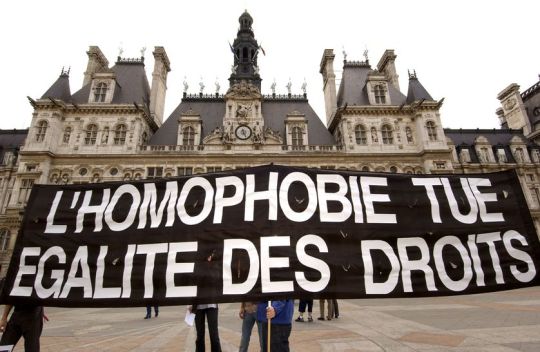
Are we safe ? In the anti-discrimination law department, we’re getting a 2 out of 3 in the Spartacus scale. Not so bad, I guess. In fact, numerous laws and amendments are here to protect/avenge us, in the cases of torture (Art.222–3 5 TER CP), murder (ART.221–4 7CP), Violence (ART.222–10/222–8/222–12/222–13), rape (ART.222–24 9 CP), other kinds of sexual abuse (ART.222–30 6 CP), threats (ART.222–18–1 CP), insults (ART.R.624–4 CP) and so on and so on. Now you are considered discriminated against when you are refused a service, a job, a raise, when people are making your life more difficult IF the reason seems to be your sexual orientation. You can always go to the police but then, you’ll have to prove it. Same goes for the insults. If someone tells you “faggot”, it doesn’t matter if you are one or not, or if the person knows your sexual identity or not, you can sue. Not a “main courante”, but sue his/her/their ass(es). But careful, because then again, you’ll have to prove it. And it’s a long, long process.

Another important problem in 2019. The police. I’m not going to try and tear a new one to them because we all know you can’t take an entire section of people and judge them the same way, but cases of unprofessionalism are everywhere and known. That’s why the datas on LGBTQ+ attacks are somewhat completely false, since most Queer people do not feel heard by the law and their representatives and therefore do not report any wrong doings. In Lille last year, a couple was insulted and physically abused on the street on the premise that they were faggots walking together. They were refused access to the police station as a police officer told them that they “should not have held each other by the arm. It was a provocation”. In Lyon, same story. The police refused to come to the scene of the attack, saying that the attackers were already gone and there was no point to go there. In Dordogne, a police officer said to a victim that he couldn’t file a complaint because “lopette” wasn’t a clear homophobic term. That is not true.

If you ever (and I hope you won’t) have to go through this, know that any derogatory term that are even slightly homophobic gives you the right to register a formal complaint, not a “main courante”. And if the officer is not cooperative, you ask to speak to his superior right away and you don’t leave until you are heard. If possible, go with a supporting loved one. I was lucky enough to run into a very comprehensive and caring police officer and took every single detail of my claim and treated me with respect. He even called me a few weeks later to tell me that the dossier had been sent to the Parquet de Justice and that something will be done. Sweet guy. It does not always work that way. “Vous l’avez pas un peu cherché?” would be the scariest thing to hear at a police station. Seeing officers laugh at the story of you getting chased on the street by a homophobe willing to break your jaw. Having an indifferent person at the other side of your phone call while your boyfriend is bleeding heavily from getting beaten with metal bars.
Also know that if the abuse, in the case of insults, are not accompanied by solid proofs, the case will be easily dismissed by the Justice department. In the best case scenario, there will be a “rappel à la loi” in which the abuser will be auditioned and sermoned, maybe a letter of apology. Then nothing. And if by any chance you go to court, the judge might call the verbal abuse you’ve been the victim of a simple “neighbor’s quarrel”. In 2017, only 25 cases led to conviction in front of a judge. That’s fucked up.
WHAT’S UP WITH RIGHTS ?
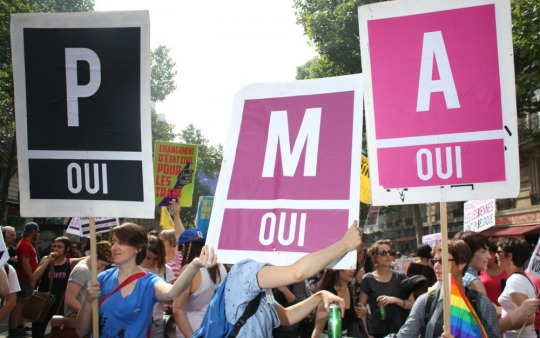
In terms of rights, we’ve already established that gay people can legally marry one another, that they are no longer considered mental ill and they can adopt kids (though two parents of the same sex cannot be on the birth certificate of the child). Yeah ?
But one of the big topics of 2018 and still very much alive in 2019 is the implementation of the PMA (Procréation Médicalement Assistée or IVF in english) for single women and lesbian couples. The CCNE (Comité Consultatif National d’Ethique) is favorable to open the practice to all, but the Conseil d’Etat, not so much. Clearly an inequality under the law, it seems that the pushback comes from the public opinion that influences the government. The methods to take that public opinions is, at best, shady, since its based only on forums organized by the CCNE to talk about those issue. 21,000 people participated in those events, filled with anti-PMA and religious subgroups, and also members of the newly-statured political party Manif pour Tous.
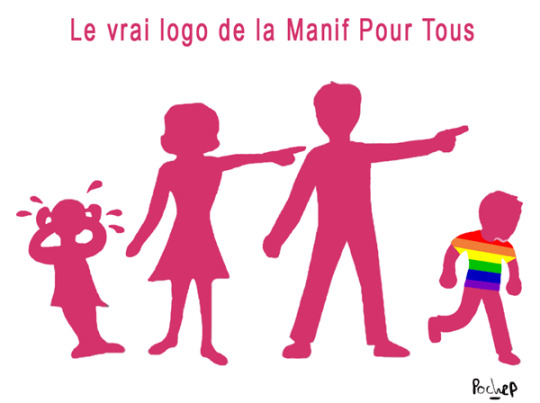
I told you we would talk about them again. MPF transitioned into a political party in April of 2015, although weirdly, they never presented any candidates to the European, Presidential or Municipal elections that followed. Apparently, the political status was designed to gain financial grounds and be exempt of many important taxes. Oh, you fuckers.
Anyway, they are very involved with the question of PMA. They recently announced (last week, actually) new actions and manifestations to protest the access of the procedure to single and gay women.
The PMA will be examined in September of this year in front of Parliament, following a statement from Edouard Phillippe, who finally decided to follow one of Emmanuel Macron’s campaign promises of 2017.
Meanwhile, debates on the GPA (Gestation Pour Autrui) will be blocked as the government has no intentions to legalize it either to the straight couples or the gay couples — but I’m guessing putting it on the table for the straight ones would open pandora’s box for the fags. Right ?

Finally, my one big concern come to blood donations and the restrictions we still have to face. Since June 1st, 2016, gay and bi men can give blood under the condition that they practice abstinence for a whole year. That’s kind of an improvement from the fact that before that, they were banned all together. But seriously ? How is our blood more dangerous that someone else’s ? Don’t you run tests before you get blood from someone ? Can’t you impose a universal check up on people ? Are you so fearful of Aids in 2019 ? Are is it the multiple hepatitis that we, gay people, spread around one another like fancy glitter ? Don’t you know by now that those kind of problems are not limited to gay, bi and “men who have sex with men” men ? I said fuck way too much in that article, but FUCK. FUCK THE FUCK OFF YOU FUCKING FUCK. FUUUCK!
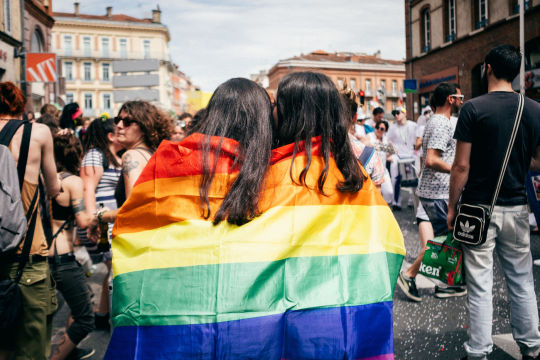
Shit. I’m gonna stop here. I’m done. There are so much shit I haven’t talked about yet ! The mutilation of intersex babies (scandalous), the transgender rights (still a pile of shit), the social media trend of outing people (what the living fuck ?), work place homophobia (beware), the racial bias for LGBTQ+ people of color (enough!).
I’m so fucking tired. I can’t take it anymore. France suuuuucks. (deep breath) (focus) (find your center) (take a step back) Better. We are making strides in multiples areas. There’s not denying it. But everything is so fragile. A change of government, a foreign influence and everything can disappear in an instant. I can still get killed on the street because that day, I was wearing pink nail polish and the wrong person saw it. People still wishes that concentration camps were a reality, on the basis of religious morals that have no place in secular societies. I can’t change homophobes. I can only enter into a dialogue when possible and protect myself as much as I can. But here’s my plea to you, Queer people. Yes, the strides are great. We can marry, we can adopt, we can inspire to very different lives from the previous generation of queers. But if you are a cis white gay man, get your head out of your perfectly bleached asshole and defend those who are less fortunate than you.
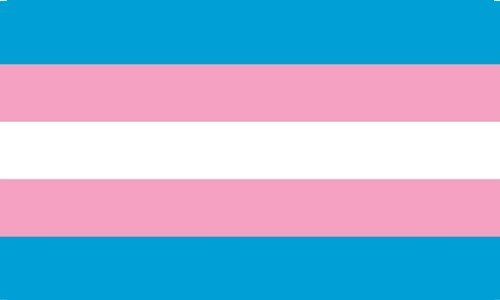
Our goal as a community should be right now to advance Transgender rights in this country. Our moral obligation is to understand and make people understand Intersex people and put a stop (either inside or outside the community) to the bias against bisexuals. We cannot be strong and thrive if we ignore each other. Be a little less selfish and solidify those way-too-fragile grounds that our ancestors who went through death penalties, epidemics and public humiliations built for us.
0 notes
Text
Million P1us
A Million P1us
They ignore us because they can.
I've been in prison going on seven years now. I started getting serious about writing when I came down. At first it was just about expression; an attempt to hold onto a little bit of freedom in a place otherwise designed to kill such things. A few years in I started writing about the shit that was happening in here. Figured, somebody should do it.
I wrote about corrupt officers, nonsensical policies, the cruelty of solitary confinement, the censorship, corruption, and the dangerous parole process. I wrote about the slave wages and the financial fleecing of inmates and their families. I wrote about the benefits of good time and Michigan's failure to offer positive reinforcement to inmates. I wrote about everything I saw, the ridiculous, hilarious, and serious alike. I wanted to give a full voice to this experience. Something deeper than stereotypes.
And then I realized that none of it mattered if no one was reading it. So I started a Facebook page, well Mama C started a Facebook page. I connected with amazing people, but it was clear Facebook wasn't the best platform. So we took what little money we had and started a website. Mama C, the saint she is, learned how to put it all together. And finally, a few moths ago, we entered the Twitersphere (they should bring back the electric chair, just so they can strap me in for writing Twitersphere). This is where the magic happened (can you be electrocuted twice?). In a few short months I linked up with so many like minded people, interested and passionate about what was going on in here, which inspired me to push even harder. After every new piece, I felt the sense of relief that comes from getting something off your chest. But whenever I'd see something written, or said about prison reform or mass incarceration, this responsibility, almost a guilt, would settle on me. I was getting good at pointing fingers, but I wasn't offering any solutions. I figured I'd try to put everything I knew together in a single, comprehensive, piece about the American prison system— to see if that would get rid of the feeling for good.
I spent months writing this pain-in-the-ass tome and, when it was finally done, I felt genuine relief. Everything I knew about the fiasco of incarceration was distilled down to single, coherent, piece of work. Dare I say, I was even proud? I was proud…but I was even more relieved.
Now it was time to get it in the hands of people who could actually make some change. Prison reform, after all, is the ONE bipartisan issue in the county.
With magnum opus in hand, Mama C tracked down all 110 Michigan State Representatives. She sent them each their own personal copy, along with a plea for the reinstatement of good time, and an open letter offering assistance. Twitter friends & the Facebook family sent links and messages to the Governor's office all the way up to federal lawmakers. There was even this amazing degenerate, who also claimed to be a famous comedian, who took notice. And he helped spread the word.
Not a single politician responded.
If this ex-telemarketer and procrastinating, but excellent author, who claims to know Joe Rogan, can't get any of the powers that be to listen, then what chance do the rest of us have?
ZERO. The answer, as it stands now, is zero.
And then I got to thinking.
I've always had love for the underdog, the oppressed, the voiceless. And now I was one. I wasn't surprised at the inaction I seemed to inspire in the political landscape. More often than not, these "leaders of men" do the RIGHT thing, only as often as it is incidentally attached to what they're FORCED to do.
They IGNORE us because they CAN.
Which got me to thinking more; what if I was IMPOSSIBLE to IGNORE?
At first it was just this funny little day-dreamt hypothetical; what if a currently incarcerated inmate had a MILLION PLUS followers on social media? What would that look like? The possibilities cascaded. It felt like a paradox, an impossibility, a glitch in the matrix—for an inmate to have that power.
The first thing I thought was, the system couldn't allow it. Then I wondered if could they stop it? Sure they'd try, but what could they actually do? Any attempt would likely back fire. It's a 1st amendment issue. The biggest strength we have at the bottom, is how little we have to lose.
The fact, that this impossibility wasn't actually impossible, was hypnotic. I couldn't stop thinking about it—about what it meant.
Corruption rarely survives the light of day.
An inmate with a Million P1us followers on Twitter, for instance, would be like one of those nanny cams for the prison system. Knowing you're being watched will significantly curb a babysitter's urge to beat a kid into submission. Trust me, the first severe beating of my life was at the hands of a "baby sitter." I was so young I don't remember but Mama C says my whole face was swollen, that I could barely open my eyes. Then again I am half Asian, with baby eyes like slits, you ever think of that mom? Maybe this case of child abuse was just a simple case of racism. In any case, if ol' Rocky Marciano (he was Italian) had known there was a camera, he might've just let me cry myself to sleep without out the vigorous use of the five-fingered sleep aids.
Over share?
The point is, that without the ability to covertly fuck us over, they'd be forced to stop fucking us over, or at least cut back significantly. Politicians could no longer simply throw us away and ignore our pleas without repercussion. They could no longer anonymously give contracts to these abusive corporations who price gouge the hell out of us, while filling their campaign coffers—at least not without a Million P1us witnesses. From the lawmakers down to individual employees, they'd finally be forced to practice what they've been hypocritically preaching for decades: Personal Accountability.
It was fun to think about, but I wasn't actually going to do it. It was just something to think about during the commercial breaks of Rick & Morty. Just another game of "What If?"
Right?
My mischievous side disagreed; it absolutely loved the idea—wouldn’t let it go.
I'd be trying to watch TV and it'd chime in with shit like, "Why not? What are you scared of?" And the little bastard wouldn't shut up about Kim Kardashian. Kim this, and Kim that. "Kim snaps her fingers and people walk out of prison."
I did my best to remind my mischievous side that I'm not Kim Kardashian.
It reminded me I'm more of a Courtney anyway. And that Snooki, Guy Ferari, and half the cast of The Real Housewives all have a million plus followers.
I wondered how my mischievous side knew this but I didn't.
It said, "The whole point of prison is to silence us. Why not grab a megaphone and be louder than we've ever been? Ariana Grande:67 mil, Justin Beiber: 107 million followers on Twitter."
It was a good point.
"Ralphie May, Channel West Coast, Grumpy Cat..."
I don't know how accurate the research was.
All I'm trying to do is take a shit when I hear the subtlest voice say, "We've been waiting for this our entire lives. We are literally MADE for this. The ultimate thorn in the side of authority—of oppressive, corrupt, authority! An epic middle finger to the entire system."
The constant interruptions are starting to get to me but at this point I'm still unsure.
And then my mischievous side, that rebellious little bastard, says something undeniable, something it knows will kill every excuse I could ever muster. Slowly, fully aware of what it's doing, it says, "J-E-R-E-M-Y R-E-N-N-E-R has FIVE MILLION followers!"
And just like that, I'm in. My mischievous side wins for the first time in a long time.
I tell myself, if all these people have figured out how to get a million plus people to follow them, just so they can sell spanks, talk about their next hair color, or just BE a displeased cat, then what kind of coward would I be not to take a shot. Even if it's an air ball, or whatever clunky sports metaphor you'd prefer, if it means the chance to expose corruption & abuse, the government waste, inhumane practices, family separations, and the mass incarceration of those with mental illness, addicts, black, brown, and poor white people, not to mention the chance to knock Jeremy Renner off his high horse, and make the occasional poop joke...then I have to try.
I mean why can't it be done?
If we can rally enough rebels & misfits, the bleeding heart liberals and the stone cold conservatives alike, these conscientious men and women, Millennials, Baby Boomers & Gen-X'ers, to take a few seconds to tune in, then we'll have done something that has never been done before.
We'll have created a blueprint for other inmates and underdogs to fight for change, to show that redemption is real and that you can affect the world around you, even if you're actively being stepped on, if you work hard enough, think outside the box, and reach out to a few friends, who reach out to a few friends, and so on and so on until you become impossible to ignore.
Plus it would be hilarious, for politicians to have to take into consideration the opinion of a convict they'd all but thrown away...And most important of all: to stop Jeremy Renner from using Jeep commercials to force us to listen to his shitty band.
The goal is to get to a #Million P1us followers before I'm released. Which, if nothing changes, gives us 'til 2025.
We can do it.
In a world of click bait and countless distractions, this FOLLOW and SHARE can be your little contribution to prison reform and ending mass incarceration, a small, but not meaningless, drop in the bucket that gives you something to pat yourself on the back about. I'll take it. Or maybe you're just a rebel who's looking for another middle finger to stick in the air. Maybe you're a troll that thinks it'd be hilarious. Or maybe you're just tired of the same old meaningless bullshit on the news, Twitter, and social media in general. Whatever your reason, you'll be a part of giving a MDOC inmate a REAL chance at grabbing the world by the ear, and letting it know what's actually going on in here.
You already know I can't do this alone. If successful, this will be OUR achievement. Anyone who throws in will be a part of this absurd and exciting movement, and together we'll loom larger than we do alone.
I hope you're in.
We can't live in a world where Grumpy Cat has 1.6 million TWITTER followers, and Jeremy Renner is strutting around like he's the cock of the roost —but a convict on the forefront of the ONLY bipartisan issue of prison reform, with a saint for a mother, an amazing group of friends, and a real penchant for subversive, often ridiculous, writing— can't muster up Million P1us people to pay attention. Whatever God you believe in will not likely spare such a world for too long.
Ok, so: inspiration, outright begging, guilt tripping and fear mongering; ticked all the boxes.
Oh, and I almost forgot to mention; most important of all; it's actually a really GOOD Twitter account, on its own, regardless of it being about some convict writer.
So there's that as well.
Please link, share, mention, follow, or whatever you think would help. You already know groups and people that I'd never think of who'd be worth reaching out to. Oh, and CONTACT me...I want to know who you are, and what you think. I'm serious about this being OUR project.
Your friendly neighborhood convict, Bobby C.
'til next time, appreciate the small things...even the annoying ones.
#MillionP1us
0 notes
Link

For 17-year-old Mary Amanuel, from London, it happened in Tesco. “We were in year 7,” she remembers, “and my friend had made an Instagram account. As we were buying stuff, she was counting the amounts of likes she’d got on a post. ‘Oooh, 40 likes. 42 likes.’ I just thought: ‘This is ridiculous.’”
Isabelle, an 18-year-old student from Bedfordshire who doesn’t want to disclose her surname, turned against social media when her classmates became zombified. “Everyone switched off from conversation. It became: ‘Can I have your number to text you?’ Something got lost in terms of speaking face to face. And I thought: ‘I don’t really want to be swept up in that.’” For 15-year-old Emily Sharp, from Staines in Surrey, watching bullying online was the final straw. “It wasn’t nice. That deterred me from using it.”
It is widely believed that young people are hopelessly devoted to social media. Teenagers, according to this stereotype, tweet, gram, Snap and scroll. But for every young person hunched over a screen, there are others for whom social media no longer holds such an allure. These teens are turning their backs on the technology – and there are more of them than you might think.
Quarter of 14-year-old girls in UK have self-harmed, report finds
While many of us have been engrossed in the Instagram lives of our co-workers and peers, a backlash among young people has been quietly boiling. One 2017 survey of British schoolchildren found that 63% would be happy if social media had never been invented. Another survey of 9,000 internet users from the research firm Ampere Analysis found that people aged 18-24 had significantly changed their attitudes towards social media in the past two years. Whereas 66% of this demographic agreed with the statement “social media is important to me” in 2016, only 57% make this claim in 2018. As young people increasingly reject social media, older generations increasingly embrace it: among the 45-plus age bracket, the proportion who value social media has increased from 23% to 28% in the past year, according to Ampere’s data.
This is part of a wider trend. According to a study by US marketing firm Hill Holliday of Generation Z – people born after 1995 – half of those surveyed stated they had quit or were considering quitting at least one social media platform. When it comes to Gen Z’s relationship to social media, “significant cracks are beginning to show”, says the firm’s Lesley Bielby.
She believes we will definitely see an increase in younger people quitting or substantially reducing their use. “And as younger Gen Zers notice this behaviour among their older siblings and friends, they too will start to dial down their use of social media.”
As the first generation to grow up online, Gen Z never had to learn social media, or at least not exactly. They glided through every iteration: Facebook (2004), Twitter (2006), Instagram (2010) Snapchat (2011) in real time, effortlessly adopting each one. But a life lived in pixels from your earliest age is no easy thing.
“You start doing things that are dishonest,” says Amanuel, who quit social media aged 16. “Like Instagram: I was presenting this dishonest version of myself, on a platform where most people were presenting dishonest versions of themselves.”
Like Amanuel, Jeremiah Johnson, 18, from Luton, grew weary of the pressures of sustaining an online persona. “It’s a competition for who can appear the happiest,” he says. “And if you’re not happy and want to vent about it on social media, you’re attention-seeking.”
After being “bugged” by his friends to get Instagram (he had stopped using Facebook aged 16), Johnson joined. He lasted six months. “If you’re having a bad day and scrolling through it, you’re constantly bombarded with pictures of people going to parties. Even if that’s not an accurate portrayal of their lives, that’s what you see. So I stopped using it. It became depressing. It was this competition of who’s the happiest.” He pauses. “Participating in that is not something I’m interested in.”
Hyper-connected teens have been faced with a surfeit of clicks, retweets and likes – and the dopamine rush of online validation – since the neural pathways in their brains were formed.
“They’re becoming overwhelmed with the responsibility of maintaining their social sites and with upholding the somewhat inflated persona many have created on these sites, where they are constantly seeking approval via the amount of likes they get for any given post,” Bielby says.
“The people who are the most honest about themselves do not play the game of Instagram,” Amanuel says. “The game of Instagram is who can maximise their likes by being the most risque, outrageous or conformist as possible. I didn’t want to play that game.”
At school, social media can be a brutal barometer of popularity. “If you meet someone new and they ask for your Instagram and you only have 80 followers,” says Sharp, “they’re going to think: ‘You’re not that popular’, but if you have 2,000 followers they’re going to be like: ‘You’re the most popular person in school.’” Sharp quit social media at 13. “I’d rather not know what other people think of me.”
A desire to build authentic, offline friendships motivated some to quit. “I’m so much better at real-life socialising now,” says Amanuel. “Not just those people you accept on a friend request who are friends of a friend.”
For Tyreke Morgan, 18, from Bristol, being a hard man to get hold of – he has no social media presence at all – has its advantages. “Everyone goes through other people to find me,” Morgan laughs, “and when I hear that they’re been trying to get hold of me I say: ‘Great!’ Why would I need 500 flakey friends?”
But when you are from a digitally native generation, quitting social media can feel like joining a monastery. Amanuel was recently asked by co-workers if she had Snapchat. “I said no,” Amanuel remembers, “and I instantly heard, like, gasps. It was like I’d revealed something disgusting.” She explained that she did have a Snapchat handle, but never used it. “Relief came out of their eyes! It was really weird.”
Teenagers not ready to quit entirely are stepping back for a while. Dr Amanda Lenhart, who researches young people’s online lives, conducted a survey of US teenagers, asking them about taking time off social media. “We found that 58% of teenagers said they had taken at least one break from at least one social media platform. The most common reason? It was getting in the way of schoolwork or jobs, with more than a third of respondents citing this as their primary reason for leaving social media. Other reasons included feeling tired of the conflict or drama they could see unfolding among their peer group online, and feeling oppressed too by the constant firehose of information.”
Bielby agrees that young people are becoming more aware of the amount of time they waste online. Of the young people Hill Holliday surveyed who had quit or considered quitting social media, 44% did so, she says, in order to “use time in more valuable ways”.
“I don’t know how people doing their A-levels or GCSEs have the time for it,” says Isabelle. “They’re constantly studying, but their only distraction is social media.” Rather than get sucked into a “mindless vortex of never-ending scrolling,” as she puts it, when Isabelle isn’t studying she prefers to be outdoors.
The fact that Gen Z have had their every move documented online since before they could walk, talk, or even control their bowels helps explain their antipathy to social media: it makes sense for them to strive for privacy, as soon as they reach the age when they have a choice over their online image.
“I’ve seen parents post pictures of their child’s first potty online,” says Amy Binns of the University of Central Lancashire. “You think: ‘Why are you doing this to your child? They wouldn’t want this to be public.”
Gen Z has an interest in privacy that subtly sets them apart. “Young people want to get away from the curtain-twitching village, where everyone knows everything about you,” Binns says. So while today’s teens spend a lot of time online, they don’t actually share that much personal information. And when they do share, it’s strategic. “You’re painting a picture of who you are and your image,” says Binns. “It’s your own shop window or brand.”
“Framing a picture and posting it on there is not a five-minute thing,” says Amanuel, explaining that any post will be well-thought-out in order to project a certain image and maximise likes. “It takes hours of deliberation.”
“When social media started, we didn’t really know what it was going to mean,” says Binns. “Young people are more aware of the value of privacy than we were 10 years ago.”
Amanuel says that the Cambridge Analytica story, with its exposure of widespread data harvesting, helped prompt her to get off social media, and many more young people seem to be turning against Facebook; on Tuesday, it was reported that the number of Facebook users aged 18 to 24 in Britain is expected to fall 1.8% this year.
Some of the teens I spoke to were concerned about how technologies such as Snap Map – a Snapchat feature that tracks your friends geographically, in real time – were spreading through their schools, and mistrustful of the privacy consequences of being surveilled by your followers wherever you go. “Snap Map is this big thing with a lot of my friends, but there is a sense of privacy that is being breached as well,” Isabelle says.
Teenagers are also educated about the ramifications of an offensive tweet, or explicit picture, as well as the health consequences of too much screen time. “Young people are being taught in schools about sharing nudes and how tweets can travel around. They’ve seen the horror stories,” says Binns.
Isabelle agrees. “Constant screen time damages your ability to see, and it also causes internal damage, such as anxiety.” Studies have shown that social media use can negatively affect mental wellbeing, and adolescents are particularly susceptible: one nationally representative survey of US 13- to 18-year-olds linked heavier social media use to depression and suicide, particularly in girls. And 41% of the Gen Z teens surveyed by Hill Holliday reported that social media made them feel anxious, sad or depressed.
But quitting social media can create new anxieties. “Our research shows that the biggest fear of quitting or pausing social media is missing out,” Bielby says. Some are more sanguine than others. “Do I miss out on stuff?” Morgan asks. “Yeah, of course. People find it hard to keep in contact with me. They say: ‘It would be easier if you had this or that.’ But I don’t think it’s that hard to type in my number and send a text. You’re just not willing to do it.”
Others struggle with the fear of missing out. “It’s like everyone in your friend group has gone to a party without telling you,” Johnson says. At times, he questions himself. “I second-guess myself a lot. There are some days I’m really convinced I want to reinstall it, not for myself, but because I want to appear normal.”
Still, refuseniks such as Johnson may not be outliers for ever. In a world in which everyone is online, renouncing social media is a renegade, countercultural move: as quietly punk as shaving your head or fastening your clothes with safety-pins. Morgan has become a svengali for classmates wanting to escape. “My friends come to me and say: ‘Tyreke, I don’t have social media any more,’ and I go: ‘Why? I thought that’s what you guys do.’ And they say: ‘Thanks to you, because of the things you said and the stuff you’re doing.’ It’s quite cool.”
Quitting social media is a determined move: apps including Facebook and Instagram are designed to be addictive. “Social media is so ingrained in teenage culture that it’s hard to take it out. But when you do, it’s such a relief,” Amanuel says. She has received a lot of “admiration” from her peers for quitting. “They wish they were able to log off. People feel like social media is a part of them and their identities as teenagers and something you need to do,” she says. “But I’m no less of a teenager because I don’t use it.”
via the Guardian
0 notes
Text
Apple, Amazon, Tesla and the Changing Dynamics of the Car Industry
This post Apple, Amazon, Tesla and the Changing Dynamics of the Car Industry appeared first on Daily Reckoning.
Apple’s brand extends far beyond technology and coolness. Over the years, the company has accumulated incredible goodwill with consumers. There is only one other company that comes to mind that has generated a similar amount of affection: Amazon.com. Amazon made shopping online easy, its customer service is impeccable, and it is transparent with consumers about pricing. After all, it allows other merchants to sell their merchandise through its website. Amazon will even ship it for them.
Consumers’ trust in Amazon’s pricing is so great that most people don’t even bother with comparison shopping anymore; they skip Google (which is not good news for Google, by the way) and go directly to Amazon.
I recently found myself willing to pay a few dollars more on Amazon than on a competitor’s website because I knew that if I needed to return the product, the process would be seamless. That goodwill turns Apple and Amazon into “platforms” (a very trendy word on Wall Street now), allowing them to launch a wide variety of new products.
When Apple comes out with the Apple car, it will be able to grab a disproportionately large market share from the General Motors of the world because of that deep well of goodwill.
By the time my youngest child, Mia Sarah, who is almost two, learns to drive, internal combustion engines will likely be a relic consigned to museums (just like Ford’s Model T).
I had an “aha!” moment when I recently visited a Tesla store and saw its cars’ power train. It looks just like a skateboard — it basically consists of a flat slab of metal (which houses the battery), four wheels and an electric engine the size of a large watermelon. That’s it — the Tesla has only 18 moving parts. I don’t know how many moving parts an internal combustion engine (ICE) car has, but it must be hundreds if not thousands. Interestingly, ICE cars also have more electronics than a Tesla.
Wall Street is going gaga over the stocks of dealerships (especially after Warren Buffett’s Berkshire Hathaway bought Van Tuyl Group) and carmakers. I am in the minority, but I think that party will come to an end. Just like Tesla, Apple is not going to be using a dealership model to sell its cars. It would not want the Apple car buying experience to be tainted by a sleazy car salesman. Just as with the iPhone, the company will want to have complete control of the buying experience.
If both Tesla and Apple bypass the dealership model, the GMs of the world will be at an even larger competitive disadvantage. They will have to abandon the dealership model too. Yes, I know, selling cars directly to consumers is not legal in many states, but if the U.S. Constitution could be amended 27 times, the law on car sales (which is an artifact of the Great Depression) can be amended as well.
The traditional dealership model is unlikely to survive anyway, as its economics dramatically degrade in the electric-car world. A car that has very few moving parts and minimal electronics has few things to break. Consequently, electric cars will need less servicing, throttling the dealerships’ most important profit center.
The baby boomer generation romanticizes cars. Most boomers can recite the horsepower and other engine specs of every car they have ever owned. For the tail end of Gen X (my generation) and Millennials, a car is an interruption between Facebook and Twitter. We know the brand of speakers in our car but if asked would have to Google its horsepower. We feel little romanticism for our cars and have much higher brand loyalty to Apple and Google than to GM or Ford.
What is also amazing about electric cars is that they aren’t that much different from smartphones. Smartphone prices have declined significantly over the years because their components became ubiquitous and commoditized. With the exception of spark plugs and tires, most components of a GM car will be different from the ones you’ll find in a Ford. The opportunity for scaled manufacturing and so commoditization is very limited in the auto industry.
The simplicity of electric cars and the declining ambition of Tesla, Apple, and whoever else enters that space to be known as a “car” company will likely lead to commoditization of components and thus lower prices. Tesla today is more a software and battery company than a car company.
Think back to the day when Apple introduced the iPhone. No one suspected that it (and the smartphones that followed) would enable a service like Uber, which is busy putting cabdrivers worldwide out of business.
The unforeseen consequences of the advent of electric cars will reverberate much farther than the demise of dealerships and significant shifts in market share in the auto industry.
Gasoline can only be made from oil. (Yes, there is ethanol, but the economics of ethanol in the U.S. are problematic.) Sources of electricity are diverse — natural gas, coal, nuclear, solar, wind, hydro, oil (and I’m sure I’m forgetting something). Seventy percent of oil goes into cars and trucks. Just imagine for a second the shifts in global political alliances if oil lost its luster. The U.S. might forget how to spell “Saudi Arabia,” and the Middle East might start looking very different.
When the day comes that Apple makes its entrance into the auto industry, it will likely be successful and very disruptive. After all, it has the much-needed software know-how to design a car (it is already working with car companies on CarPlay, the iPhone-centered car infotainment system), it boasts a global network of stores, it has a deep well of goodwill with a billion fans globally, it possesses unlimited resources ($150 billion of net cash and it generates $50 billion of free cash flows a year), and its imagination has not been damaged by decades of producing cars with internal combustion engines.
Let me stress that last point. There is a very good reason why Nokia, which at one time was the dominant cellphone manufacturer, failed to compete with Apple’s iPhone. It had too much institutional knowledge. It had hundreds of engineers who tried to add IQ to a dumb phone. They were attempting to convert Symbian, a dumb phone operating system, into a smart phone operating system. Despite Apple showing Nokia how the smartphone should look, they couldn’t see their product as a smartphone but rather just as the next iteration of a dumb phone.
General Motors’ answer to Tesla was not any different from Nokia’s response to the iPhone. GM came out with the Chevy Volt, which was really one of its internal combustion engine cars with an electric engine dumped in. Unless an ICE car company creates a silo unit isolated from the rest of the operation, it will be very difficult if not impossible to get engineers who have designed ICE vehicles all their lives to suddenly change the paradigm of their thinking and turn into electric-car engineers.
Regards,
Regards, Vitaliy N. Katsenelson for Contrarian Edge
Vitaliy N. Katsenelson is chief investment officer at Investment Management Associates in Denver, Colo. He is the author of “Active Value Investing” (Wiley) and “The Little Book of Sideways Markets” (Wiley). This article first appeared on Katsenelson’s Contrarian Edge blog.
The post Apple, Amazon, Tesla and the Changing Dynamics of the Car Industry appeared first on Daily Reckoning.
0 notes
Text
95% off #Architect Android apps with MVP, Dagger, Retrofit & RxJava – $10
Learn software architecture skills. Build apps with Model-View-Presenter pattern. Make apps more robust and fun.
All Levels, – 4 hours, 37 lectures
Average rating 4.5/5 (4.5 (37 ratings) Instead of using a simple lifetime average, Udemy calculates a course’s star rating by considering a number of different factors such as the number of ratings, the age of ratings, and the likelihood of fraudulent ratings.)
Course requirements:
Basic information about software development processes Desire to learn something new and continuous improvement
Course description:
Developing Apps is fun…..is it not? It’s really exciting to take an idea from the back of a paper napkin all the way to the App Store!
It is Not only fun but also lucrative. There are tremendous opportunities available out there for app developers and designers all over the world.
Android offers an excellent platform for developing and delivering apps. Most of you might already be working on this platform. If so, you would know, Android platform and mobile app industry as a whole has a remarkable future ahead.
Smartphones enable us to do a lot these days, from shopping our clothes, booking movie tickets, to ordering groceries and getting them delivered right to our doorsteps. It is hard to believe – but even after all these advancements – there is still a lot of paper-based work happening in the workplace and everyday lives. There are still untapped opportunities and workflows which need to move to the mobile platform. If you have a good idea – the world is your oyster. You can change the way how people live their lives by introducing a compelling app.
You may be working as a freelancer or may have a full-time job as an app developer or architect. Whether you create one app a year or multiple apps in a month – there must have been times when you got tired of looking at long strings of code tangled together into a spaghetti-like mess.
This is particularly painful if you have to inherit a legacy code base and you have to add features to it or fix bugs.
Make your life easier and building apps fun……………by learning tried and tested software architectural patterns.
In this course – you will Get a detailed and behind the scenes look at Model-View-Presenter (MVP) pattern, which helps make code simple and clean. You also get familiar with other fundamental concepts like dependency injection, reactive programming, unit testing, mock objects which assist you throughout the app development lifecycle. Learn frameworks like Dagger 2, Retrofit, RxJava, Junit, Mockito and others.
Gain valuable skills of architecting apps in a flexible and scalable manner. Advance your career and work on more cutting edge projects out there.
Full details Build and architect Android apps using MVP pattern Understand dependency injection and Dagger 2 Understand Gradle build system Understand unit testing and JUnit for Android apps Understand mocking objects using Mockito Understand type-safe REST API client called Retrofit Understand reactive programming and RxJava Understand the MVP UI pattern
Full details Mobile and Web App Developers Software Architects Tech Founders and Co-Founders (Technical or Non-Technical)
Reviews:
“MVP concept and Dagger usage describe very well, but less on RxJava. If RxJava mention more about java 8’s lambda expression will be better.” (劉允中)
“Course is well designed for intermediate to upper-intermediate learners. In my opinion, however, it missed more architectural concepts, how to properly design an android application, patterns that one should use etc. It focused more on libraries and frameworks i mostly already knew (RxJava, Mockito etc). Besides MVP pattern, there weren’t other patterns properly explained. I expected issues like manipulating (loading, storing, caching etc) images in a proper way (and popular libraries to do so), best practices to work with sqlite databases (and popular libraries, maybe ORM as well). Everything is described in a low level way on Google’s Android SDK page. From this course, I expected to learn how real professionals develop android applications, using best practices and tools to make their development easier, but still correct.” (Michal Boška)
“Nice starting. Instead of jumping onto MVP straight away, course started on how mobile and it’s technologies are evolved. That gives anybody a feeling of where they are and the taste of the technology that they are building or using. Examples taken are nice. Including the dagger along with MVP made it a Clean Architecture. Nice to see the all 4 popular libraries (MVP, Dagger, Retrofit and RxJava) together and used in one app. Thanks! Sometimes I felt speaking was fast but I rewinded the lecture and listened to it again.” (Gurappa c)
About Instructor:
Manuj Aggarwal Rene Gens
I’m an entrepreneur, investor and a technology enthusiast. I like startups, business ideas, and high-tech anything. I like to work on hard problems and get my hands dirty with cutting edge technologies. In the last few years, I’ve been a business owner, technical architect, CTO, coder, startup consultant, and more. Currently, I am the principal consultant, architect and CTO of a small software consulting company TetraNoodle Technologies based in Vancouver, Canada. We work with various startups on some cutting edge and interesting problems. Whether it is ideation and refining of your startup idea or building a dream team to execute on the idea – we provide a diverse set of solutions which help these startups succeed in their plans. I have been in the software industry since 1997 and I have worked with early stage businesses to Fortune 100 mega corporations. With proficiency in creating innovative architectures and solutions, I have emerged as a professional who knows how to balance these solutions against cost, schedule, function, quality, and other business considerations. I am passionate about sharing all my knowledge that I have acquired over the years. I am particularly interested in helping technical and non-technical entrepreneurs, founders and co-founders of tech startups. I will strive to bring courses which provide practical know-how and advice about designing, architecting, optimizing and executing on your next big idea. Let us connect on Linkedin or Twitter!
Rene Gens has been an Android Developer for over two years making the first steps through Udemy. His journey after Udemy was to embrace better code principles and build better Android Applications. Rene Gens is specializing in the industry tools that make Android development fun, robust and maintainable. Currently he is a working developer, co-founder of a start up and a part time freelancer. If you want to learn all the pro tools like Dependency Injection, RxJava and many more you are at the right place.
Instructor Other Courses:
OpenStack: An Introduction to Cloud Computing and OpenStack Manuj Aggarwal, Technology Leader | Architect | CTO | Startup Junkie (53) $10 $20 CI and CD with AWS CodePipeline, Jenkins and AWS CodeDeploy OpenStack: Install, build and run IaaS cloud with Open Stack …………………………………………………………… Manuj Aggarwal Rene Gens coupons Development course coupon Udemy Development course coupon Mobile Apps course coupon Udemy Mobile Apps course coupon Architect Android apps with MVP, Dagger, Retrofit & RxJava Architect Android apps with MVP, Dagger, Retrofit & RxJava course coupon Architect Android apps with MVP, Dagger, Retrofit & RxJava coupon coupons
The post 95% off #Architect Android apps with MVP, Dagger, Retrofit & RxJava – $10 appeared first on Course Tag.
from Course Tag http://coursetag.com/udemy/coupon/95-off-architect-android-apps-with-mvp-dagger-retrofit-rxjava-10/ from Course Tag https://coursetagcom.tumblr.com/post/157812428133
0 notes